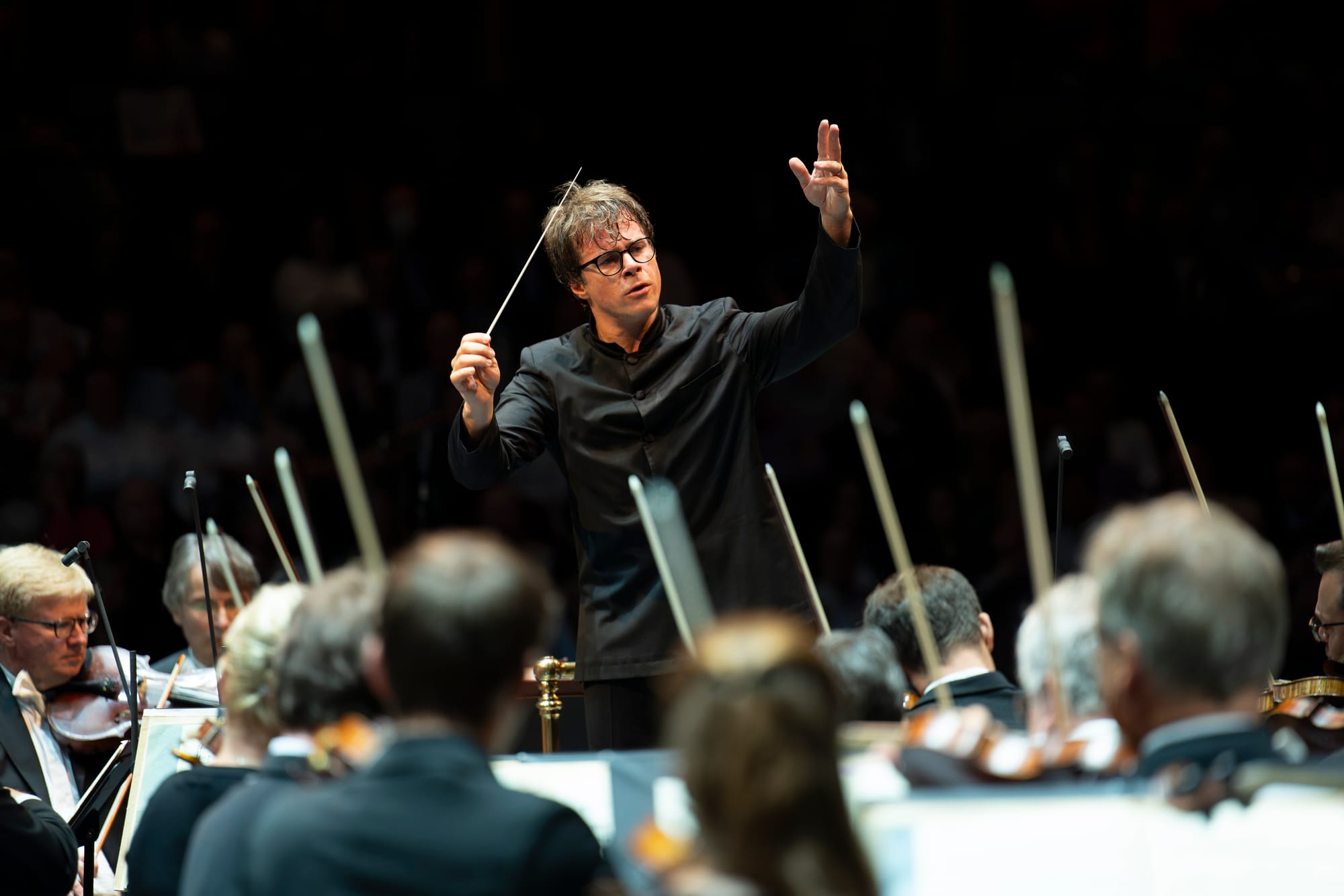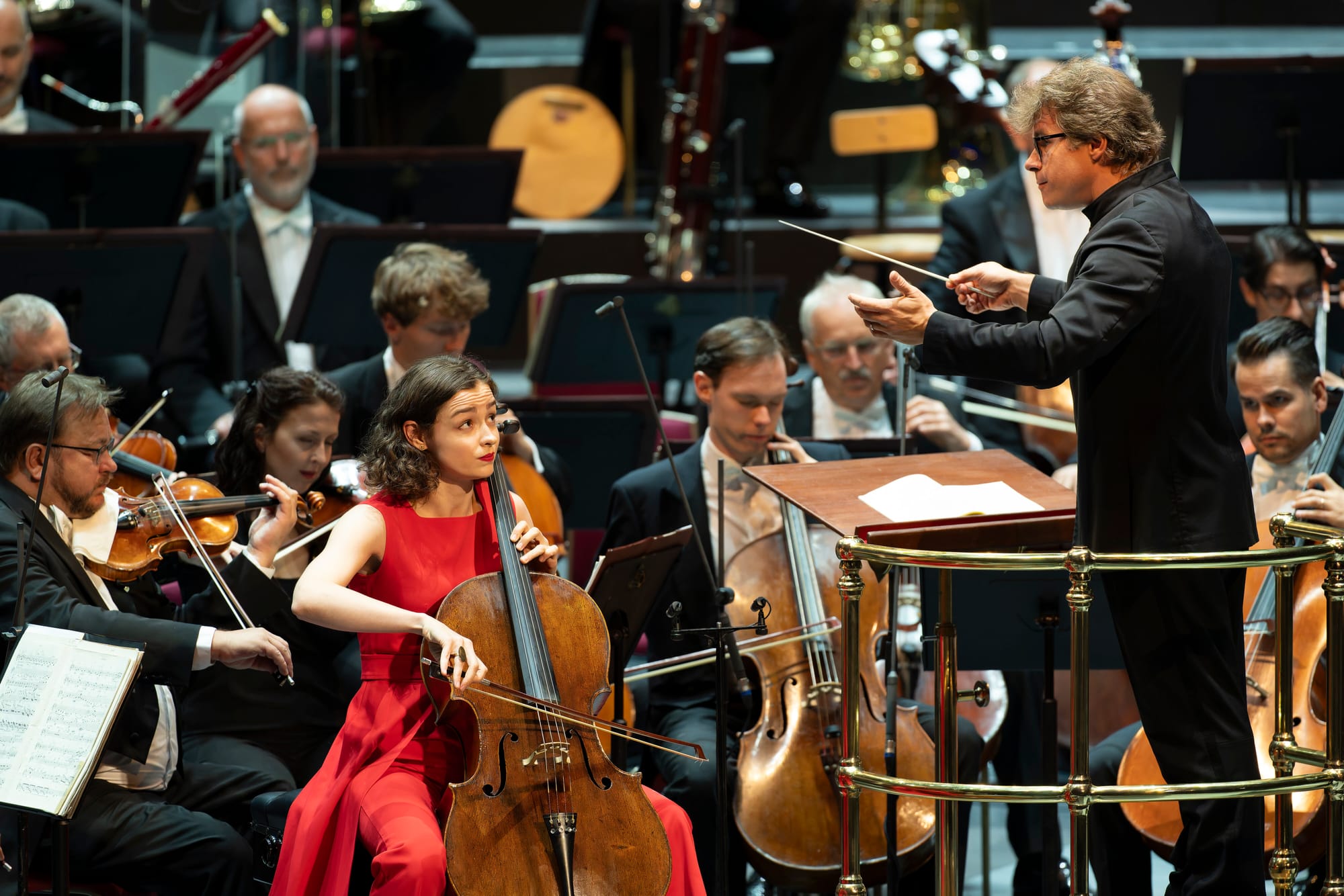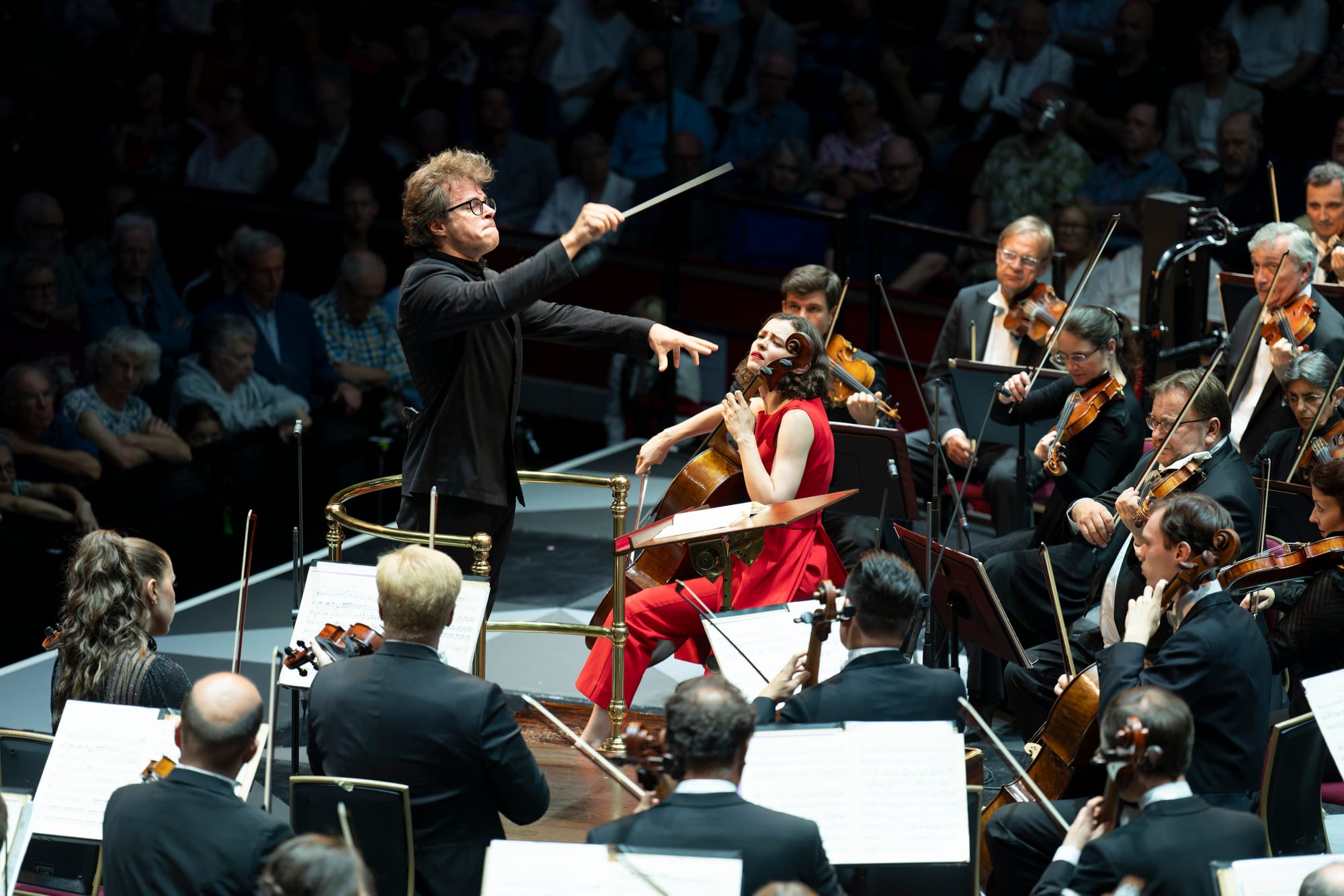
Music of the homeland featured at this Czech Philharmonic Prom: Dvořák and Suk, two core Czech composers themselves bound by a familial link: Suk married Dvořák’s daughter Otilie, in 1898.
The Czech Philharmonic Orchestra is always a welcome visitor to these shores: most recently in my experience, delivering a phenomenal Smetana Má vlast at the Barbican under Senyon Bychkov in 2022 (review). The orchestra’s Central European sound instantly recognisable: lush strings, rich-toned horns with subtle vibrato (heard at several points, and certainly in the first movement orchestral exposition solo, and truly individual woodwind soloists. The orchstral expoition was. masterclass in conducing, superbly controlled and perfectly idiomatic. Russian cellist Anastasia Kobekina’s contribution was individual: she does not have a huge sound, it tends to the lean; as if to compensate for lack of power we were gifted several held-breath painissimi, matched brilliantly by the orchestra (a piaanississimo tremolando was particularly memorable). Kobekina does play fast and free with the notated score though, and if the performance proved one thing it was how fine a collaborative conductor Hrůša is. A duet between threadbare cello and flute, punctuated by quiet string pizzicato, was particularly notable. There was much to celebrate here in Kobekina’s overtly lyric take, and much light shed on a score we all though we knew. But at times the first movement did threaten to disintegrate. It was a fascinating if not totally revelatory performance, and tuning was not always completely in place from Kobekina.

The central Adagio comes with a qualifier: ‘ma non troppo’. This was a performance that dared to verge on the indulgent, and occasionally transgress, a performance a long way away from anything ‘ma on troppo’. It was to the orchestra the ear migrated, time and time again: two clarinets, perfectly matched; three horns, one unit. Dvořák in pastoral mode. The transparency of textures from the orchestra was miraculous, while timpani were beautifully clean. The finale (straight in, laudably) was fed by beautifully pointed accents and orchestral detail beyond compare. The final cello crescendo leading into the concluding peroration was a moment when everything gelled. Not everything did throughout, but this was a thought-provoking performance nonetheless.
And an encore: a dance, Gallarda, by her father Vladimir Kobekin for cello and tambourine (played by the Czech Philharmonic’s Pavel Polívka; it includes extra percussion in the form of foot stamping, too. Here is Kobekina playing this on YouTube:
Suk’s ‘Asrael’ Symphony is a Hrůša speciality, and he conducts the vast score from memory. My introduction to the work can be found in this review of a pre-lockdown performance by Gardiner and the LSO at the Barbican. The symphony (two parts, five movements split 3 + 2) is a meditation on the Angel of Death. The score makes huge demands, from what must be one of the most gratifying (and yet scary) tuba solos in the repertoire, here the excellent Václav Steklý) to stratospherically high violins. Although in sheer orchestra size and scope this might be seen to align itself with Schoenberg (Pelleas und Melisande) or Mahler, under Hrůša it was Zemlinsky who seemed to be the reference point, the textures glimmering, mysterious, luxurious, fantastical. Perhaps the most potent Mahler link was that of the potent bass drum in the first movement (a pre-echo of Mahler’s Tenth perhaps).
This piece can appear diffuse, but Hrůša bound it together perfectly, daring the music to dissipate. He was certainly helped in his endeavours by the stunning orchestra: Those perilously high violin lines found the Czech PO’s violins offering the most exquisite silvery sound. A danse macabre towards the end of the first part was disturbing at a soul depth; violin solos from Jan Mráček were perfectly placed. Silences, or near silences, found the Albert Hall audience unusually quiet, a testament to the power of the performance. The power of the final Adagio. maestoso was remarkable the final chord hanging in the air, a stillness daringly prolonged by Hrůša.

An undeniable achievement. Suk’s score could hardly be better served. A final comment on the orchestra itself: each section seems perfectly honed in this orchestra. Pretty much every name is Czech: the horn section even keeps it in the family, with Jan Voboříl as Principal and Jan Voboříl Junior listed as fourth horn. An orchestra with its own distinct sound and personality is a rarity these days; I am sure the second Prom (which includes Janáček’s Glagolitic Mass) will be equally stimulating.








